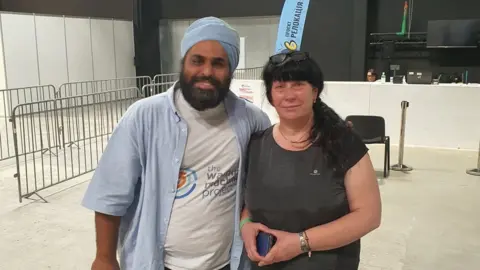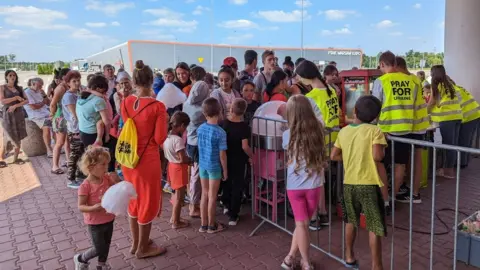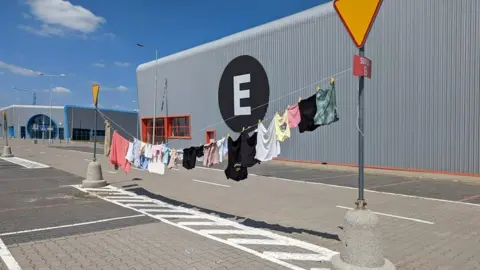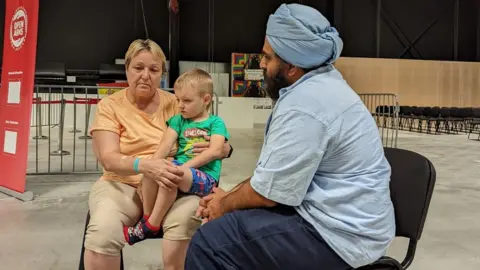Ukraine war: Group brings washing machines to refugees
 The Washing Machine Project
The Washing Machine ProjectA charity has delivered hand-cranked washing machines to Ukrainian refugees displaced by the Russian invasion.
The Washing Machine Project has given the manual appliances to a humanitarian aid centre in Warsaw, Poland.
Founder Nav Sawhney, an ex-University of Bath student, identified gaps in sanitation and hygiene during a visit to Poland in June.
The charity returned to deliver six of its "Divya" devices, aimed at people without access to washing facilities.
Mr Sawhney said they "want to help as many people as we can".
 The Washing Machine Project
The Washing Machine Project"We want to make a difference. You can feel helpless but this is a practical way to help someone," he said.
"It's been a really humbling experience. People were using them instantaneously."
Refugees are given a time slot to wash their clothes and the charity founder said he was pleased to be able to "help in some form".
 Washing Machine Project
Washing Machine Project"They were really pleased and it was well-received," he said.
"We want to help alleviate that burden of another chore. People might think it's a small task but it's important."
Mr Sawhney said that they would provide more washing machines but they needed to work with partners and request donations in order to help with funding.
 Washing Machine Project
Washing Machine ProjectWhile in Poland the team met with Ukrainian refugees such as Alina, from Dnipro, and Mila, from Kherson, who were both forced to flee their homes.
"They can't go home. There's no chance of a return," said volunteer programmes officer Hugo Morisetti.
"One lady showed us a picture of her house and a missile had gone straight through it.
"They have been here for four months and it has become a community but they are worried about what comes next. It's starting to feel permanent for some."
The charity is also planning to travel into Ukraine later this year.
"That will be a higher risk but it's vital to get the machines where they are needed," Mr Morisetti said.

Follow BBC West on Facebook, Twitter and Instagram. Send your story ideas to: [email protected]
